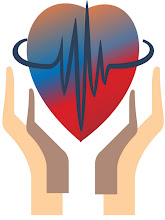Gallbladder removal surgery is a fairly common procedure, with some cases being unquestionably necessary, such as when the organ is extremely inflamed and infected. Other times, a cholecystectomy is recommended only because of a build-up of gallstones. Although removal of the gallbladder can relieve symptoms - the horrible pain, indigestion, bloating, and diarrhea, long-term relief is not guaranteed; in fact, four out of ten patients still experience the same problems as before surgery.
This may be due to the fact that a cholecystectomy does not address the root of the problem, which is diet, not the gallbladder itself. The most effective way to prevent a reoccurrence of the issues that existed before gallbladder removal surgery, including the formation of stones, is to follow a specific diet after gallbladder surgery.
What is the Function of the Gallbladder?
The gallbladder is a small, eggplant shaped organ located directly below the liver, on the right side of the body. Its function is to assist the liver in breaking down fats and eliminating toxins from the body through bile. Bile is a digestive substance which originates in the liver. It is made up of cholesterol, lecithin, bile pigments, and bile salts. Bile is held in the gall bladder temporarily. When there is food present in the small intestine, the bile travels through bile ducts to join the digested food on its journey out of the body. In this way, excess cholesterol and toxins are eliminated from the body.
After removal of the gallbladder, the liver is on its own. It has to work harder to break down fats and filter waste compounds. Even without this organ, stones can still form in the liver, whenever the bile fluid becomes over-saturated with cholesterol. Because of this, it is very important to eat a careful diet after gallbladder surgery, making sure not to consume the same foods that contributed to the formation of gallstones in the first place.
Foods to Eat and Foods to Avoid after Gallbladder Removal
After a cholecystecotmy, it is important to eat foods that will help support the liver, and minimize the workload of digestion. Healthy, unprocessed vegetable oils, particularly those rich in omega-6 and omega-3 fatty acids, such as flax seed oil and hemp seed oil, should be consumed on a regular basis. Both of these nutritious oils are available in supplement form, or they can be used to make salad dressings; they should not be used as cooking oils. These oils, as well as other vegetable oils such as olive oil, help the body naturally eliminate unhealthy LDL cholesterol build-up. Being of a slippery nature, and liquid at room temperature (as opposed to saturated fats, which are solid at room temperature), unsaturated fatty acids slide through the body's pathways with ease, taking toxins and harmful build-up with them.
Friday, May 7, 2010
Subscribe to:
Post Comments (Atom)




No comments:
Post a Comment